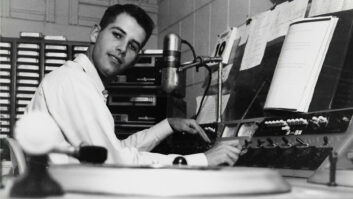One of the more interesting aspects of the report released by two Democratic lawmakers last week about the reign of Kevin Martin as chairman of the FCC concerned broadband-over-power-line technology.
Michigan Democrats Reps. John Dingell, outgoing chairman of the Committee on Energy and Commerce, and Bart Stupak, chairman of the Subcommittee on Oversight and Investigations, looked into allegations that the agency “ignored interference complaints from broadcasters caused by BPL high-speed Internet technology, delayed an enforcement investigation for two years and improperly withheld engineering data regarding BPL from the public,” according to the document. The investigative committees agreed.
BPL delivers broadband Internet service over power lines in the frequency range between 1.7 to 80 MHz. The FCC issued its rule defining BPL access and setting technical and administrative requirements to protect licensed radio operators from interference under the previous chairman, Michael Powell.
The committees looked into allegations that the commission withheld certain engineering studies from the public, studies it relied on when promulgating the BPL rule. At the time, the American Radio Relay League took issue with the BPL decision, saying it would interfere with ham frequencies.
When I asked then-Chairman Powell about it at the time, he said other amateur frequencies could still be used even if the ones involved with BPL suffered interference. This didn’t mollify the ARRL, which responded that the frequencies chosen for BPL were some of the most heavily-used frequencies by amateurs.
The ARRL took the issue to court, saying the FCC had “cherry-picked” one out of several studies to rely on when deciding the BPL rule. Under the current chairman, the Enforcement Bureau and General Counsel’s Office continued to withhold the redacted engineering reports, according to the report. Amateur radio won the issue; an appeals court this spring found the FCC had violated the Administrative Procedure Act when it played “hide and seek” with engineering data used to support the BPL order.
However, the report out last week says it appears many of the interference problems that originally characterized BPL are now moot because of advancements in the technology. Still, the report, stemming from what began as a bipartisan investigation but ended up a as a Democratic-only effort, concludes “the fact that the FCC withheld the required engineering reports in this matter indicates poor judgment and an attempt to hide critical weaknesses in its decision.”
This is but one purported example in the report of how the agency has been mired in mistrust under Chairman Martin, however even Stupak told reporters the probe couldn’t prove any criminal wrongdoing.
This probe, which we reported on last week, would have had more of an impact if it had not come out so late in Martin’s term.
The Democrats said Martin’s office stalled the efforts and was uncooperative; Martin’s spokesman said last week that was not true.












